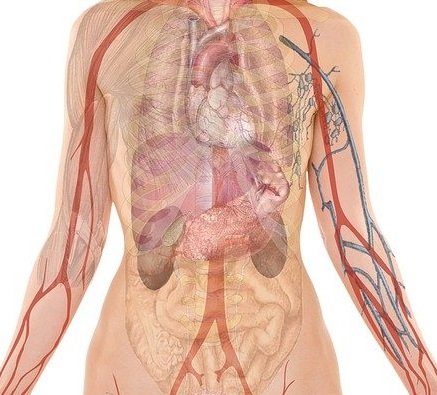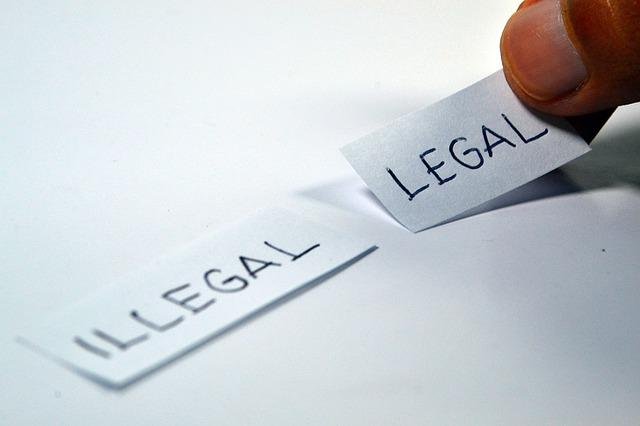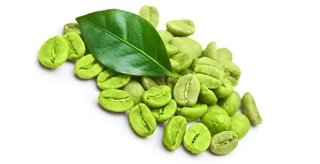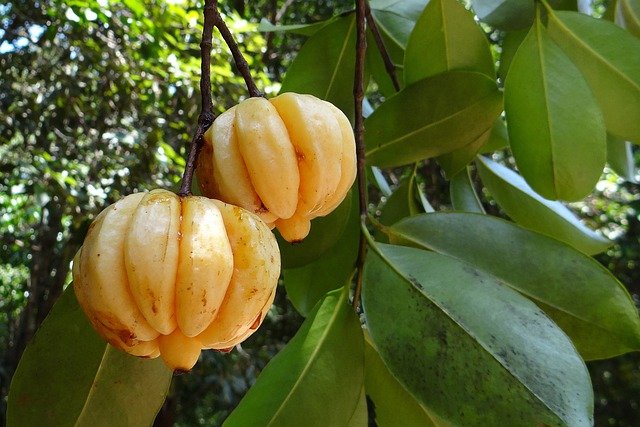The popularity of fat-burning supplements is on the rise. And its market is expected to further expand with time.
And, TBH, it doesn’t sound alarming because that is what is expected of us. Humans, who are becoming busier day by day, are looking for a quick fix to every chore.
So why would you expect us (the heavier ones) to go the hard way (i.e., eat healthy and workout every day) when you can simply take a fat-burning supplement?
But the main question is…
Do the fat-burning supplements even work?
Well! Read the comprehensive article I have compiled for you, and you will know that neither the fat-burning supplements are safe nor do they work as you expect them to be.
What are fat-burning supplements?

Fat-burning supplements are the ones that help you lose body fat. Their manufacturers claim that these supplements work by increasing your BMR.
So, what is BMR? BMR stands for basal metabolic rate. It is your body’s ability to burn calories at rest.
Now, this is something that attracts the attention of obese people a lot, a percentage of which keep rising.
A survey conducted in 2012 states that every 2 people out of 3 are overweight in the US. And the weight gain in children and adolescents is alarming too. The research states that almost one-third of the children come in the overweight category.
Having extra weight is quite burdensome. The everyday difficulties you face compel you to lose weight. This is why almost half of the overweight and obese people are trying to lose weight in one way or another.
But when marketers of fat-burning supplements guarantee that you can burn calories WITHOUT doing anything, people tend to notice. After all, it’s not easy to work out every day and eat healthy food only.
Therefore, as per research, almost 15% of US adults have used fat-burning supplements at some point in their life. The problematic fact is almost none of them (less than 1/3rd) consulted their doctor beforehand or during the supplements’ consumption.
Thus, it is necessary to learn about fat-burning supplements, their mechanism of action, and their possible interactions. Due to the lack of research in this area, there is a high possibility that the fat-burning supplement may harm you or may interfere with your other medications such as medicine for diabetes, etc.
How do fat-burning supplements work?

Different fat-burning supplements work by different methods. The most common ways by which fat burning supplements function are:
- Reduce appetite
They make you feel less hungry over time. As you eat less food, you gain less weight. - Decrease macronutrient absorption
This property ensures that not all of the food that you eat is digested. - Reduce body fat
The stored fat reserves in your body will be used for energy. - Increase metabolism
You will burn more calories at rest - Increase thermogenesis (heat production in the body)
Your body temperature will increase which will eventually reduce your weight.
They come in different forms i.e., tablets, liquid, powder, capsules, soft gels, and bars. You can find a plethora of fat burning supplements anywhere all over the world
Are fat-burning supplements regulated?

Yes, they are.
But very differently.
The funny thing is that fat-burning supplements do not come under as strict FDA regulations as other medications are.
This is because they are not even considered a drug. This is a major issue as it renders them free from preliminary market trials and approval of the FDA!
Fat-burning supplements are simply regarded as dietary supplements. FDA trusts the manufacturers to provide truthful information about the drug’s uses. Only when FDA finds claims that go against any fat-burning supplement, do they then look into the matter and eventually take the product off the market.
This is an alarming issue when you consider the size of the market they cater to.
A 2016 study suggests that Americans spend 2.1 billion dollars every year (Yes. EVERY YEAR!) to buy pill forms of weight loss supplements.
Therefore, it is vital that these expensive and rather untrustworthy fat-burning supplements be rigorously checked before becoming accessible to the public.
Common ingredients of fat-burning supplements
You would presume fat-burning supplements to have one or two ingredients only. Or mostly a 10 at a time.
But this is not the case.
Fat-burning supplements can have up to 90(!) components in some cases! And due to the unjustified relaxation by the regulatory authorities, most of the manufacturers do not even bother to mention all of the constituents on the label.
Therefore, it’s necessary to know which ones work and which don’t, so you can make a conscious decision whether to use them or not.
The list of ingredients we have mentioned here include the ones that might work, if at all, to help you lose modest weight.
Caffeine

Caffeine is naturally present in coffee, tea, green tea as well as many herbs. Herbs such as Cola nut and Yerba mate are loaded with caffeine and are seldom found in fat-burning supplements.
And FYI it’s important to know which herbs contain caffeine.
Because most of the time, the manufacturers of fat-burning supplements do not list caffeine in the ingredients. They might just name the herbs (such as those mentioned above) and get away with using caffeine. People wouldn’t know they have been consuming caffeine more than they should.
Caffeine works by activating your CNS and also impacts your heart and skeletal muscles. It also acts as a diuretic and mediates digestion. Caffeine aids in weight loss by
- Enhancing fat burning through the sympathetic nervous system (increased oxygen supply to your muscles)
- Promoting effective fluid loss
P.S. Did you know caffeine is the most consumed psychoactive drug in this world? Every person can have consumed caffeine in some form once in his lifetime!
Effectiveness:
As far as we know, caffeine does help with burning fat and increasing energy expenditure. But the thing is clinical trials held to prove its efficiency are quite ambiguous. This is because, almost always, a combination of ingredients has been used in such trials. Read along to see this for yourself.
In 2002, 167 obese participants were given the choice of placebo or Ma Huang and Kola nut (192 mg of caffeine/day). They were monitored closely in terms of diet and exercise. It was observed that, at the end of 6 months, the ones taking caffeine lost 2.7 kg more than others.
Another study conducted in Japan in 2016 showed the dose-dependent relation of caffeine to weight loss. In this experiment, 75 overweight men and women, with BMI 24 to 30, were given 5 different treatments for 3 months. Those were
- Placebo
- 0 mg caffeine + 500 mg G-hesperidin
- 25 mg caffeine + 500 mg G-hesperidin
- 50 mg caffeine + 500 mg G-hesperidin
- 75 mg caffeine + 500 mg G-hesperidin
The results showed that higher doses of caffeine corresponded with a greater amount of weight loss (The ones who consumed 75 mg caffeine lost 0.56 BMI. However, the good part is this combo targets abdominal fat (the most stubborn fat to lose) effectively.)
So, it’s easy to conclude that caffeine, in combination with other herbs, might help you lose weight. But the question that lies here is that for how long can you see the effects of caffeine in your body?
Well, here comes the disclaimer: According to a 2013 review, your body becomes resistant to caffeine’s effects on long-term use. (A sad reality).
Safety:
Well, this is an important part.
Caffeine overdose and toxicity are more common than you can imagine…
The FDA has set a limit on caffeine consumption safe for every age group. While FDA recommends a complete restriction of caffeine for children, it has allowed a 400 mg/day dose of caffeine for adults and 100 mg/day of caffeine for adolescents.
A 1000 mg/day caffeine intake can cause side effects such as
- Nausea
- Vomiting
- Nervousness
- Cerebral edema
- Tachycardia (irregular heartbeat)
- Seizures
While 10,000 mg/day of caffeine consumption can be fatal.
Final verdict:
Taking caffeine for weight loss is, quite frankly, a shot in the dark. It might help you lose some weight or prevent gaining the lost pounds back, but you might become tolerant to its effects in the long run.
Green tea and green tea extract

Green tea is quite famous for its acclaimed weight loss benefits. In fact, it’s one of the most highly consumed beverages in the world.
Fat-burning supplements usually have green tea extract in them. Green tea contains
- Caffeine
- Polyphenol (catechin)
- Flavonoid (EGCG)
Several studies have been done to find out whether all of these components cause weight loss or not.
Green tea supposedly causes
- Decreased carbohydrate digestion
- Increased fat burning
- Reduces fat absorption
- Increases your energy expenditure
Let’s find out whether these claims are true or not.
Effectiveness:
Well, the theoretical claims suggest that green tea does aid in weight loss. A review of 6 trials published in 2013 indicates that caffeine, in combination with polyphenol (catechin) can cause much better weight loss than caffeine alone.
The authors claim that the combined effects of these ingredients, as present in green tea, effectively increase your metabolic rate. This is very important for maintaining weight loss and motivates your body to lose more weight.
However, not all the studies work in favor of green tea. A large number of studies indicate that the weight loss results are rather small.
A 2012 review, based on 14 trials, observed the weight loss effects of more than 1500 overweight people who were given green tea in increasing dosages. The trials, which spanned 4 months in duration, showed a mean weight loss of only 0.95 kg more than the control group. This value is quite insignificant for the range of effects we expect from an effective fat-burning supplement.
Another trial was done in 2016 on overweight postmenopausal women. They were given decaffeinated green tea for 12 months to see whether it causes weight loss or not. Unfortunately, there was no overall effect on their BMI or body weight.
Safety:
Green tea is quite safe to consume as a beverage. Its common side effects include constipation, nausea, abdominal discomfort, and increased blood pressure. All of these side effects are quite mild too.
However, there is a slight hiccup.
Studies in mice show that long-term consumption of green tea causes liver toxicity. A similar effect was noted in a 2017 human trial too. This trial consisted of overweight, postmenopausal women who had 1700 mg of green tea every day for 12 months. It was noted that such women had significantly higher liver enzymes than others, indicating some kind of damage to the organ.
However, another trial conducted on healthy men, who consumed half the amount of green tea than the previous trial, showed no signs of liver damage.
Final verdict:
Green tea has a modest effect on weight loss. So, if you don’t mind having a cup or two a day, it’s possible you might lose some weight on it.
Bitter Orange

Bitter Orange (Citrus aurantium) is a plant whose fruit is linked with weight loss. Its fruit is loaded with ‘synephrine’, a compound that resembles epinephrine and norepinephrine found in our system. These hormones are linked with fight or flight response in our body, which pushes our body to produce more energy and thus burns more fat.
The studies claim that consuming this fruit
- Increases lipolysis (breakdown of fat)
- Improves your overall energy
- Suppresses appetite (but to a small extent only)
Bitter Orange gained quite an attention when its fruit’s constituents were discovered. This fruit then became a main ingredient in the fat-burning supplements after the ban of ephedra, the holy grail of weight loss (a fat-burning drug that was banned after its severe side effects were observed in humans). However, this ‘ephedra substitute’ is not all good.
Effectiveness:
Well, the research supporting the efficiency of Bitter orange as a fat-burning supplement is weak and quite contra indicatory. And this is mostly because Bitter orange is almost always combined with other ingredients in fat-burning supplements. It has become impossible to isolate the effectiveness of Bitter orange from the group.
The research done on Bitter orange is mainly small human studies. The small sample size as well as no strict regulations make it impossible to isolate the effectiveness of Bitter orange.
One research was done on 20 overweight adults who had a BMI greater than 25. They were given a supplement containing 975 mg of Bitter orange (along with other ingredients such as caffeine) and a placebo for 6 weeks. In the end, the group taking the supplement lost 0.5 kg more than the other. This research stated that they showed a decrease in body fat, fat mass, and an increase in metabolic rate. But the combination of ingredients made the result uncertain. The weight loss was also not much appreciable.
Safety:
There are some safety concerns associated with Bitter orange, especially when it is combined with other stimulants in a weight-loss cycle.
There have been alarming amounts of chest pain cases reported. People also complained of headaches, mild anxiety, and increased blood pressure. Unexplainable pain all over the body was also observed in some.
Final verdict:
Despite the hype, Bitter orange doesn’t live up to expectations. Its inconclusive weight reduction results make its reputation as a wondrous fat-burning supplement a bit doubtful.
African mango

African Mango (Irvingia gabonensis) is a tree found in Western and Central Africa. African mango or wild mango is named so because its fruit resembles the shape of the common mango. African mango is claimed to
- Hinder adipogenesis i.e., production of fat cells in the body for storage.
- Suppress appetite
- Improve blood circulation
- Increase energy levels
But does research back up these claims?
Well, see for yourself.
Effectiveness:
There has only been 2 research done to prove the African mango’s efficiency as a fat-burning supplement. And that too by the same authors. (Fishy, ain’t it?)
The study was conducted in Cameroon where 102 obese participants, which BMI greater than 25, were selected. For 10 weeks, half of the participants were given a placebo while the other half were given the supplement 30 minutes before lunch and dinner (A total 300 mg dose daily). The final results showed that the group receiving African mango lost significantly more weight, especially around the waist.
The shortcomings of this research were mainly
- Small sample size
- Varying doses (they gave 300 mg on one day and 3150 mg on the other. Dubious, for sure.)
Safety:
African Mango is not linked to any serious side effects even in high doses. The most common side effects observed in humans are
- Gas
- Difficulty sleeping
- Mild headache
However, more research needs to be done to prove its safety as no research shows its long-term use implications.
Note: A study showed that African mango caused kidney failure in a patient suffering from chronic kidney disease.
Final verdict:
Do not go by the word of the Internet. More research needs to be done to prove African Mango’s efficiency and safety as a fat-burning supplement.
Green coffee bean extract

Green coffee beans are the pre-roasted stage of the regular brown coffee beans you see in the market.
You might think only coffee is associated with weight loss. But this is not the case.
Even its raw form, i.e. green beans are a popular component of fat-burning supplements. The excess chlorogenic acid present in the green coffee beans, as well as caffeine, makes them an ideal choice for weight loss.
Chlorogenic acid is mainly responsible for 2 things
- Regulate adipogenesis (fat cells production) in humans
- Decrease glucose absorption in the gut
Green coffee beans are high in antioxidants and help lower blood pressure too.
Effectiveness:
The lack of research is the main problem with proving the effectiveness of green coffee bean extract. Moreover, the research already done is of very poor methodological quality, therefore scientists have a hard time believing the efficiency of green coffee bean extract.
(On a side note: Me too.)
A prominent meta-analysis project of 3 trials done by Onakpoya and colleagues suggests that overweight patients lost moderate weight (i.e. 2.47 kg) in comparison to the ones given the placebo. All the trials were conducted for 1 to 3 months and had 180 to 200 mg of green coffee bean extract every day.
However, do not get inspired by this so soon.
Since all the trials used poor methodological practice, this meta-analysis doesn’t hold much value.
Safety:
At most, you will get a headache or possibly a urinary tract infection.
Nothing more than that.
Therefore, you do not have to worry about the tolerance of this extract.
However, this doesn’t exclude possible long-term effects as they are not studied in any trial yet.
Note: High dosages have an increased amount of caffeine. Therefore, concentrated products as well as combinations with other drugs can elicit other side effects too.
Final verdict:
So, can green coffee bean extract work as a fat-burning supplement? Quite possibly. But research needs to be done on its long-term effects on your body.
Conjugated Linoleic Acid (CLA)

CLA is a popular name among fat-burning supplements. It has been used for years for weight loss purposes.
CLA is a healthy trans-fat that is most commonly found in animal products such as butter, cheese, etc. CLA is responsible for
- Increased lipolysis (fat breakdown)
- Promotes skeletal muscles to burn fat
- Causes fat cells to die naturally
- Reduces fat production
Effectiveness:
The results of CLA weight loss are quite promising in animals. But the fat-burning capacity of CLA in humans is quite modest.
One 2004 trial compared the effectiveness of two forms of CLA i.e.,
- CLA as a free fatty acid
- CLA as a triglyceride
This trial was done on 130 obese men and women (BMI 25 to 30) for 12 months. It was seen that people who had CLA as a triglyceride lost 1.8% more weight than those who had CLA as a free fatty acid.
Another study was conducted in 2009 on overweight postmenopausal women, all of which had type II diabetes and had a BMI greater than 30. After 4 months, it was observed that all of them had decreased body fat and significantly lower BMI than at the start.
Safety:
The side effects of CLA are not so significant, however, they cannot be ignored either. The most commonly observed issues are gastric i.e.
- Constipation
- Diarrhea
- Loose motions
- Abdominal pain
- Nausea
- Vomiting
The list does not end here.
CLA has also been linked to hepatitis in three different cases. However, the allegations are yet to be proved.
Not only this, but certain CLA types also mess with your lipid profile. They are notoriously known to decrease HDL cholesterol i.e., good cholesterol levels. Some studies also link CLA with disturbed breast milk composition.
Final verdict:
CLA has minimal effect on body fat and overall weight. Therefore, be very careful when choosing a fat-burning supplement with CLA.
Garcinia Cambogia

Remember when Dr. Oz, on his famous show in 2012, touted Garcinia Cambogia as a “miraculous” fat-burning supplement? The world went crazy after that. Even the celebs such as Selena Gomez were stated to have lost weight by Garcinia Cambogia.
But what exactly is Garcinia Cambogia? Garcinia Cambogia is an Indonesian plant, popular for its weight loss effects. This native plant is found in the wild and is specifically harvested for this purpose.
Hydroxycitric acid is the main constituent of Garcinia Cambogia linked with weight loss. It
- Inhibits lipogenesis (fat production in the body)
- Suppresses appetite.
- Prevents the liver from storing fat
So, does it even work as people claim?
Well, not entirely.
Effectiveness:
Incompetent research findings are the main problem with proving this supplement’s weight loss capacity.
All the human trials done are short-term and differ a lot in quality.
The most notable of them is the meta-analysis of 11 trials encompassing 706 participants, all of which were overweight. They received Garcinia Cambogia (1000 to 2800 mg per day) in comparison with the control group. However, the mean lost weight was only 0.88 kg more than the placebo. This weight loss amount is not significant enough to categorize Garcinia Cambogia as an effective fat-burning supplement.
Safety:
You must be very cautious when taking Garcinia Cambogia. Its effects are NOT something to be taken lightly. These include upper respiratory tract problems, nausea, constant headache, and gastrointestinal problems such as gas and loose stools.
Not only this, but it messes with your head too. In extreme cases, mania and liver damage were also reported in its users. Mania may encompass feelings of grandiosity (that you are better than the others), sleeplessness, and irritability.
Final verdict:
Better be safe than sorry, my friend.
Garcinia Cambogia is not an everyday fat-burning supplement. Its popularity is rather only a hype I would say since it causes little to no weight loss. Besides, its side effects are way too many to be ignored.






0 Comments